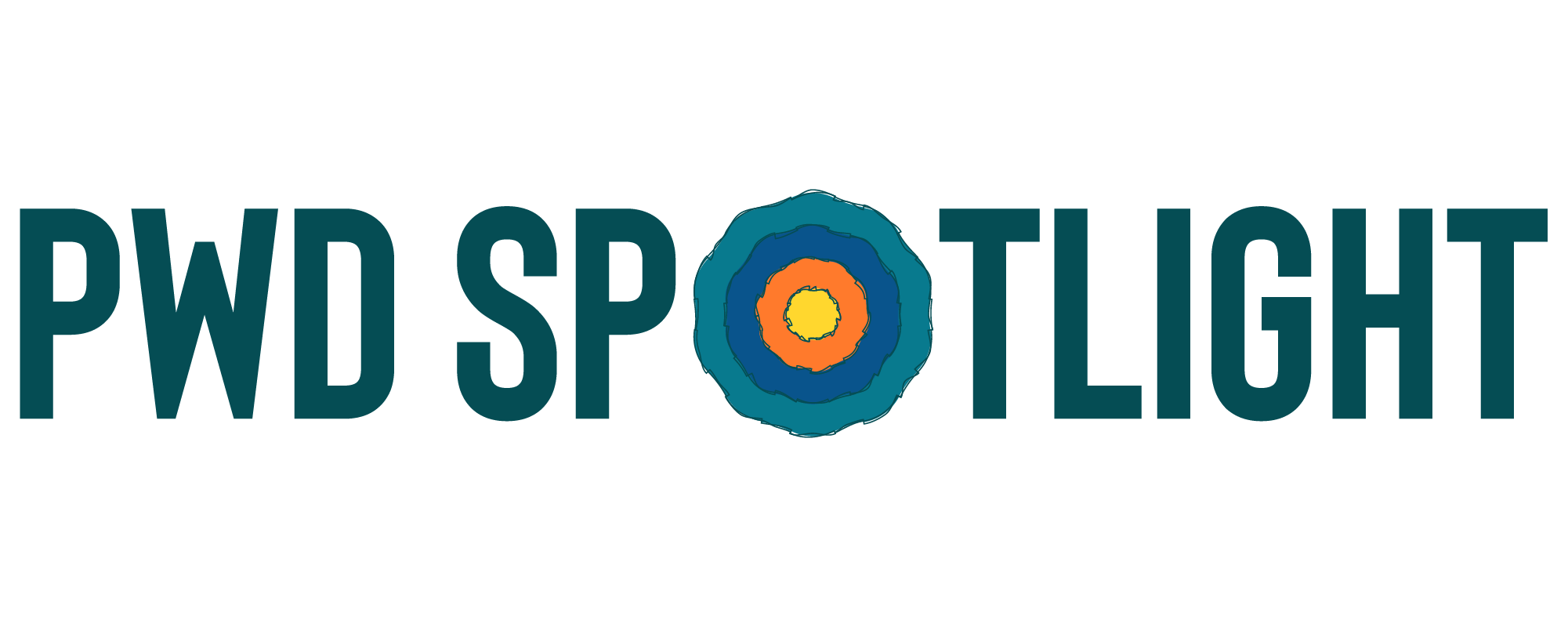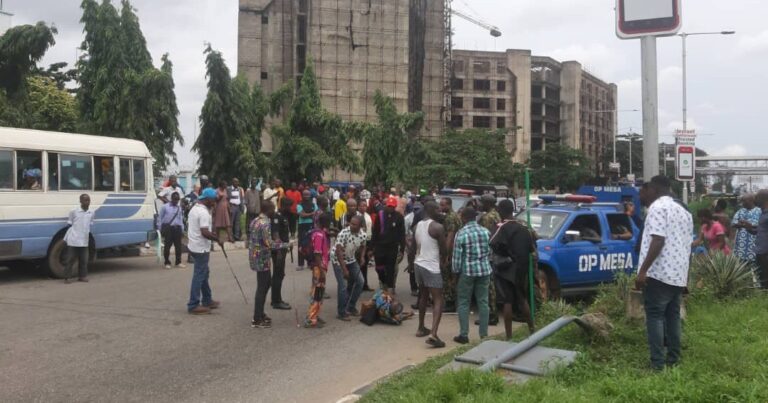By: Stephen Enoch
Air travel in and out of Nigeria’s busiest aviation hub, Murtala Muhammed Airport, was disrupted on Monday as hundreds of persons with disabilities (PWDs) blocked major access roads in protest over the prolonged closure of a government-run special school.
Carrying banners of the Farmcraft Centre for the Blind, the demonstrators used walking canes and mobility aids to form a human barricade, forcing passengers to trek with luggage in a bid to catch flights.
The protest, they said, was a desperate attempt to draw President Bola Tinubu’s attention to their plight after years of official silence.
Their school, located in the Isheri area of Lagos with branches across the state, has been shut for almost two years without explanation.
Organisers say repeated letters, petitions, and delegations to both state and federal authorities have yielded no action, leaving many former students with no choice but to beg on the streets to survive.
“This school gave us dignity,” said the protest leader, Mr. Dolor.
“We are not here to fight; we just want the President to hear us directly. Many Nigerians see us only as beggars, but we are capable, and education is our pathway to a better life,” he added.
By midday, the crowd swelled to over 500 people, with more reportedly arriving from other parts of Lagos, including Ikorodu.
The disruption triggered heavy gridlock along the airport road, prompting the Federal Airports Authority of Nigeria (FAAN) to issue a travel advisory urging passengers to confirm flight schedules and consider alternative routes.
Efforts by the Air Force Commandant, FAAN’s security director, and airport management to persuade the protesters to vacate the road failed, as demonstrators vowed to remain until a concrete government commitment is made.
For now, the standoff shows the growing frustration among Nigeria’s disabled community and the urgent need for government intervention.
PWD rights in Nigeria: A constitutional and legal perspective
PWDSpotlight reports that the Nigerian Constitution guarantees equality before the law and prohibits discrimination on the grounds of disability (Section 42).
In addition, the Discrimination Against Persons with Disabilities (Prohibition) Act 2018 affirms the right of Persons with Disabilities (PWDs) to education, healthcare, and accessibility. It mandates public institutions to ensure inclusive learning environments and penalises acts that limit PWDs’ opportunities.
PWDSpotlight observes that the enforcement remains weak, and cases like the closure of the Farmcraft Centre highlight the gap between policy and practice, stressing the need for states and the federal government to align action with constitutional obligations.

